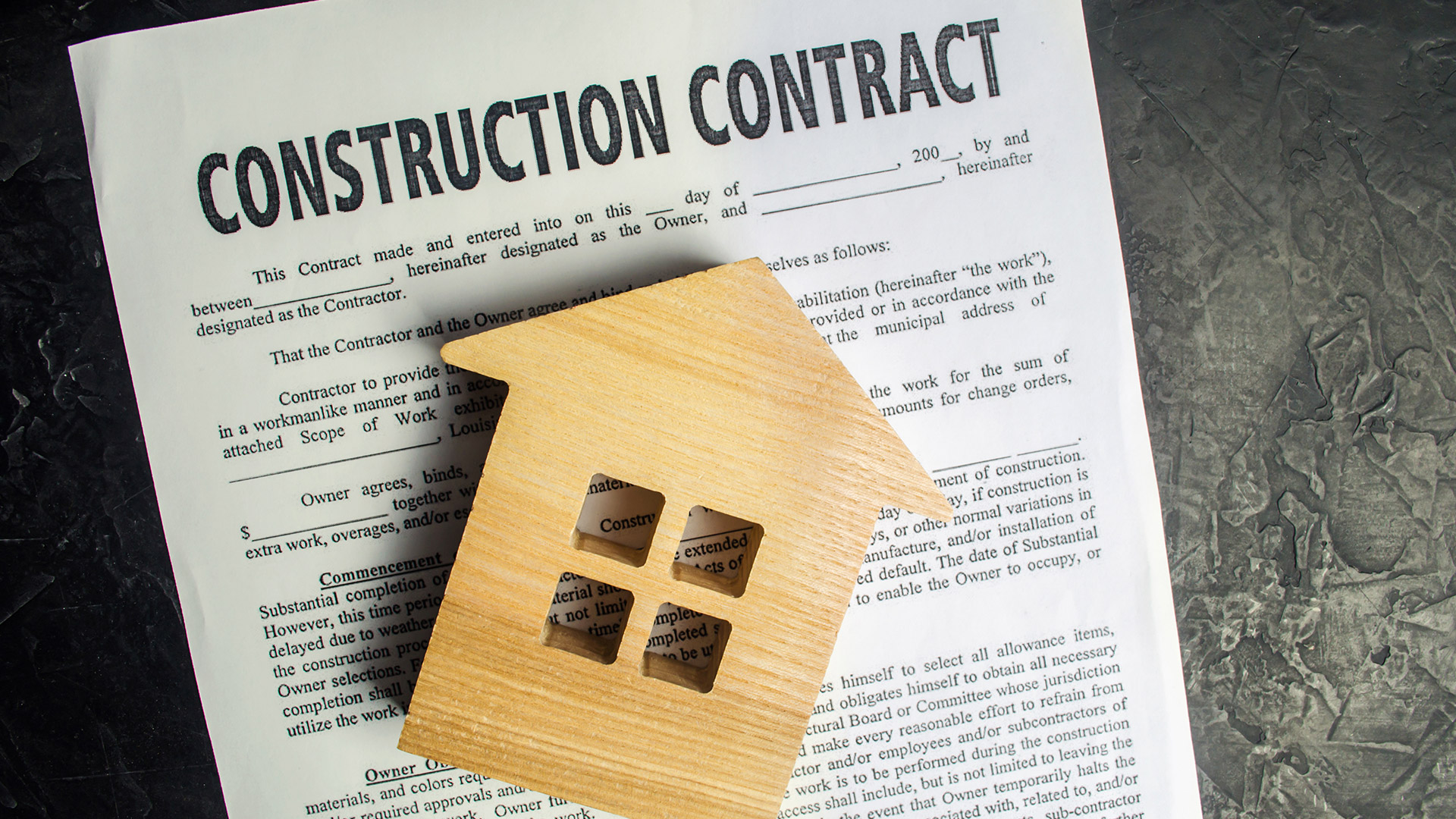A well written contract sets the expectations and protects both the homeowner and the contractor. An incomplete or confusing contract can leave one or both parties vulnerable. Everyone should always be comfortable and understand the contract before any documents are signed.
Important information about construction contracts include:
- Understanding why contracts are necessary
- Understanding what kind of contract is required
- Knowing and understanding essential contract information
- Understand construction contract terminology
Why Contracts are Necessary
A well written contract treats both parties fairly. It allows all parties to specify the schedule, payment terms and their obligations to each other. It gives the client confidence in the contractor and the contractor confidence that the client will provide payments appropriately.
Before signing a contract, it is important to understand the terms one is committing to. If the contract terms are not workable, there should be a negotiation for terms that are more reasonable. When the contract is signed, it generally cannot be changed unless both parties agree.
What Contract is Required
There are different types of contracts for different magnitudes of work.
Work orders are usually one to two pages long and are used for small to mid range repairs or renovations.
Typical information included on a work order include:
- Name and address of the company doing the work
- Client’s name and address
- A brief description of the work being done
- Any applicable brand and product specifications
- Any applicable details for the materials being used
- Any applicable contractor warranties
- The cost and when the payment(s) are due
Construction contracts are large documents and are needed for large or complex renovations or new construction. They typically will include full plan drawings and specifications.
If your project is high value or complex, you may want a lawyer to review the draft contract before signing.
Essential Contract Information
Most contracts include information pertaining to scope of work and legal responsibilities.
Information usually included within the scope of work includes:
- Name and address of the company doing the work
- Description of work the contractor is responsible for
- Defines who is responsible for hiring, paying, and warranting the work of sub-contractors
- Defines who is responsible for obtaining building permits and calling for inspections
- Estimated project dates and deadlines (start and estimated completion dates)
- The cost and when the payment(s) are due
- The warranty the contractor provides for any applicable work
- Reference project specific plans and specifications (including material, brand, and product specifications)
Information usually specified within the contractor’s legal responsibilities includes:
- Valid business liability insurance and total amount
- Enrolled in your province’s Workers’ Compensation program (self employed contractor may be exempt)
- Agrees to payment holdbacks in accordance with your province’s lien legislation
- Business or GST/HST Number
- Bonding information (if required)
- License number (if your municipality requires contractors to be licensed)
The contractor should also warrant that any sub-contractor they engage also meet these business requirements.
Important information to Understand Before Signing a Construction Contract
- Accuracy – The contract should be detailed and accurate to what is expected.
- Documents – All supplementary documents that are part of the contract should be detailed. These documents would include drawings, specifications, manufacturers, brand names, sizes, colors, materials, and any other documents signed by both parties.
- Timeframe – The agreement should have a timeframe if any aspect of your transaction will occur in the future.
- Prices – The contract should clearly state prices. Be wary of additional charges, extras, and other fees.
- Additional Fees – The process for changes (addendums) and associated costs should be described.
- Payment Schedule – The payment schedule should reflect the contractor’s performance. Payments should not get ahead of the contractor’s work (apart from initial deposit). The contract should have a retention or lien holdback.
- Payment Method – Terms of payment.
- Payment Penalties – Whether there are late payment penalties and if the penalties are reasonable.
- Warranties – Professional contractors provide a clearly-defined warranty on materials and workmanship. It should specify which parts of the work are covered and the duration of the warranty. The contractor should provide the client with the manufacturers’ warranty documents on products and materials used in the project. It should be indicated how to access warranty service(s) from the contractor and contact details.
- Material Terms – Clearly indicated which party is responsible to supply materials.
- Insurance – The contract must clearly indicate insurance coverage. The homeowner is typically responsible for liability insurance and the contractor is responsible for workman’s compensation. Before starting any work, the home insurance broker or agent should be contacted, and the scope of work explained to ensure the present insurance policy provides adequate coverage. If it does not, the policy will need to be updated.
- Resolution of Anticipated Disputes – Many contracts include an arbitration clause. This clause allows disputes to be settled through arbitration as opposed to in court.
- Lawyers’ Fees – Understand the legal obligations and defaults if the contract is breached.

Construction Contract Terminology
When reading a contract there can be some new terminology you are unsure about. Always understand what a contract is saying, if you are unsure, do your research and educate yourself before signing any legal documents.
Some important contractual terminology you should understand includes:
- Addendums – Changes in work once the renovation is in progress (also called extras). They must be written up as change orders, signed by both parties and attached to the contract. Any change to the contract price and schedule should be clearly noted on the order.
- Allowances – Refers to a lump sum in the contract price allocated for items to be selected directly by the homeowners, such as flooring, fixtures, or cabinets.
- Arbitration – The settlement of a dispute by a third party chosen to hear both sides and come to a decision.
- Contingencies – Refers to an amount set aside to deal with the unexpected or items that the contractor cannot financially gauge accurately until work is in progress.
- Holdbacks – Are a provincial legislative requirement that protects the homeowner against sub-contractors who may place a lien on their property. Each payment made to the contractor has a percentage retained (usually 10%) for a specified length of time.
- Liability Insurance – Homeowners’ insurance coverage if the home is damaged, or damage is caused to a neighbouring property.
- Lien – A lien is a legal notice that someone is claiming the right to be paid from the value of the property. If the contractor does not pay suppliers or subcontractors for materials or work on the project, the homeowner could end up with a lien on their property title or deed. If this happens, they may not be unable to renew their mortgage or sell their home until the lien holder has been paid and the lien removed.
- Retention – A percentage of each payment (or the total job) the homeowner retains until the job is completed.
- Standards of work – Describes the contractor’s commitment to performing the work in accordance with the contract documents. They are responsible to be diligent and to protect your property as well as neighbouring properties with minimum inconvenience to your household. They are also responsible to comply with regulatory requirements.
- Workman’s Compensation – Workers’ Compensation is a government program that provides workers injured on the job with financial support and, if required, pays for their rehabilitation. Homeowners usually do not have to think about Workers’ Compensation, which is the responsibility of the contractor they hire.
Always insist on a written contract covering the complete scope of work and detailing the contractor’s legal responsibilities.
If you are ready to start your project and you need a permit, you should contact us at www.eternity.design.
If you enjoyed this blog post or know someone who may be interested, share it with a friend!


